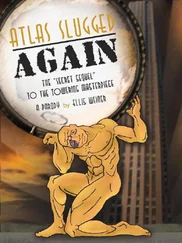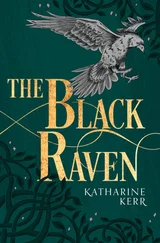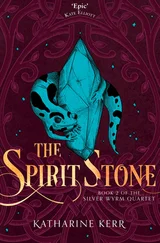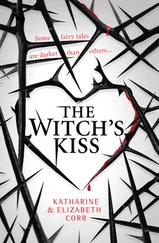“You okay?” Max asked gently.
I’m worried about an investigation into the death of a girl I barely knew, because it might uncover my secret relationship with my adopted brother. Oh, and also the fact that I lied about my friend Eris’s death.
She couldn’t say any of that, of course. Max wouldn’t understand, wouldn’t love her anymore, the moment he knew about her history with Atlas.
“Stressed about the election?” he guessed, and she almost laughed. In her worry about the police investigation, she’d half forgotten that the mayoral election was next week.
“I turned in my Oxford application last night. I guess that’s put me on edge,” she offered. Among other things.
“You’ll get in,” Max assured her.
Avery nodded, but she still felt nervous. It seemed as if more was riding on this application than just her college plans—because if she got in, then she and Max would probably be together for at least two more years after this one. And who knew what that might mean?
“How was school today?” Max pressed.
Avery thought of Leda, who still had a haunted, hunted look about her that made Avery’s heart break. She thought of how empty everything felt without Eris. “You know, typical high school drama,” she evaded.
Max grinned. “Actually, I don’t know. I went to the Homburg-Schlindle Academy for Boys. Very little room for drama.”
“No drama!” Avery gasped in mock horror. “How on earth did you entertain yourselves?”
“Fistfights, mostly.”
“Right, of course.” She tried unsuccessfully to imagine Max getting into a fight with someone. More likely he’d challenged anyone who bothered him to an epic chess match.
A pair of girls walked past, probably around fourteen. They were both wearing blouses stitched with buttons: along the collar, the wrists, even the hemline. Each row had at least one button that didn’t match the others.
The girls smiled shyly when they saw Avery, then tipped their heads together to whisper, gliding quickly past.
“You did that!” Max exclaimed in a low voice.
“I don’t know,” Avery hedged. The whole thing made her feel kind of weird.
Max just laughed. “You started this button frenzy, you might as well take ownership of it. Though I suppose I am the muse behind it all,” he couldn’t resist adding. “It’s a good thing I have such abysmal fashion sense.”
“Right,” Avery replied, playing along. “Otherwise where would I get my inspiration?”
They kept walking down the hallway, past Impressionism and into the early modern portrait galleries. Avery’s eyes skimmed over each canvas in turn, pausing over their familiar compositions. Max pretended to be looking at the paintings, but Avery saw that he was really looking at her.
“Which is your favorite?”
She shook her head. “I couldn’t pick a favorite.”
“Of course you can,” Max insisted. “Pretend the museum is burning down and you only have time to save one thing. Which is it?”
For some reason, Avery didn’t like these what-if games. It wasn’t the first time Max had asked this sort of question; he was always trying to summarize his surroundings, organize things into clearly discernable categories and keep them there. He wanted to know Avery’s favorite painting, so if someone asked him about Avery’s art history classes, he could say, Yes, that’s what she studies, and she loves this work of art most of all.
Art history wasn’t about ranking or maximizing things. It was about thoughtfulness, and appreciation—the search for a cohesive thread among all the wondrous things people had created through the centuries, in an effort to say something, to feel a little bit less alone.
“Maybe . . . Madame X .” Avery nodded toward the famous portrait of the enigmatic woman in the slinky black gown. There was something subtly fragile about her, as if her real self was nothing like the face she presented to the world.
“Cool choice. Though she isn’t anywhere near as beautiful as you,” Max said. He had completely missed her point.
Atlas would have understood , Avery caught herself thinking, and instantly chastised herself for the thought. It wasn’t fair of her to expect Max to know her the way Atlas did. Max had met her less than a year ago, while Atlas had known her most of her life.
Max reached into his pocket for his tablet, which had started buzzing. He still refused to wear contacts—which was one of the many things Avery loved about him.
“A couple people from my dorm are seeing a holo tonight,” he told her, looking up. “Want to go?”
“Sure,” Avery said easily. Sitting in a dark, anonymous theater sounded nice right now.
As they headed back toward the museum’s main entrance, they had to walk through the antiquities gallery. Its shelves were crowded with countless small broken things, items of jewelry or eating utensils, now reduced to fragments of discolored clay.
“I never liked this room.” Avery paused before a few shards of something that were labeled, simply, USE UNKNOWN. “People created these things, probably to help themselves survive , and now we don’t even know what they were for.” There was something eerily sad about it all. It made her wonder what people would say about modern devices, centuries in the future—if a scientist would someday excavate her beauty-wand and wonder what its purpose was.
“What does it matter what these things were for?” Max shrugged. “It’s interesting to study, but it doesn’t have any real impact on the present. The most important thing is to focus on making the world a better place right now, while we’re still in it.”
Avery was momentarily struck by how uncannily like her dad Max sounded.
“And, of course, spending time with you. That’s my main focus,” Max added, with a smile that wiped away any hesitations. She leaned up to brush her lips against his.
“Mine too,” she said emphatically.
CALLIOPE TWISTED BACK and forth on the circular podium, utterly disgusted with what she saw reflected in the mirror.
She was wearing what had to be the most appalling bridesmaid’s dress of all time. It was a horrific confection of tulle and satin, with a square neckline and enormous puffed sleeves that tightened at the elbows and extended to the wrists. Layers of tulle were bunched over and over on the voluminous skirt. As if that wasn’t enough, the dress came complete with a cape , which tied around the neck with ribbons.
The only part of Calliope not covered in all these swaths of fabric was her face. She felt as if she were wearing curtains.
On the podium next to her stood Livya, sinking underneath the same monstrosity of a dress. She looked pale and washed out, as always, her hair falling in thin listless strands around her heart-shaped face.
“What do you think, girls?” asked Elise. Calliope didn’t miss the way her mom’s eyes darted anxiously toward Nadav’s mother, Tamar, her future mother-in-law, who was seated in a nearby armchair, her hands clasped primly in her lap. She’d been the one to select these dresses.
“They’re great,” Calliope said weakly. Honestly, she hadn’t known there was a garment on earth that could make her look this ugly. There was a first time for everything, she supposed.
“I think they’re divine,” Livya gushed, moving past Elise as if she weren’t even there and heading straight to her grandmother. She planted a kiss on the old lady’s cheek. “Thank you, Boo Boo.”
Calliope refrained from rolling her eyes at the absurd nickname.
They were in the wedding boutique at Saks Fifth Avenue, which, perversely enough, was no longer located on Fifth Avenue at all, but on Serra Street, toward the center of the Tower. The fitting room looked like a wedding cake come to life, with its peach velvet settees, white plush carpets, even a tray of little iced petit fours arranged on the sideboard.
Читать дальше












